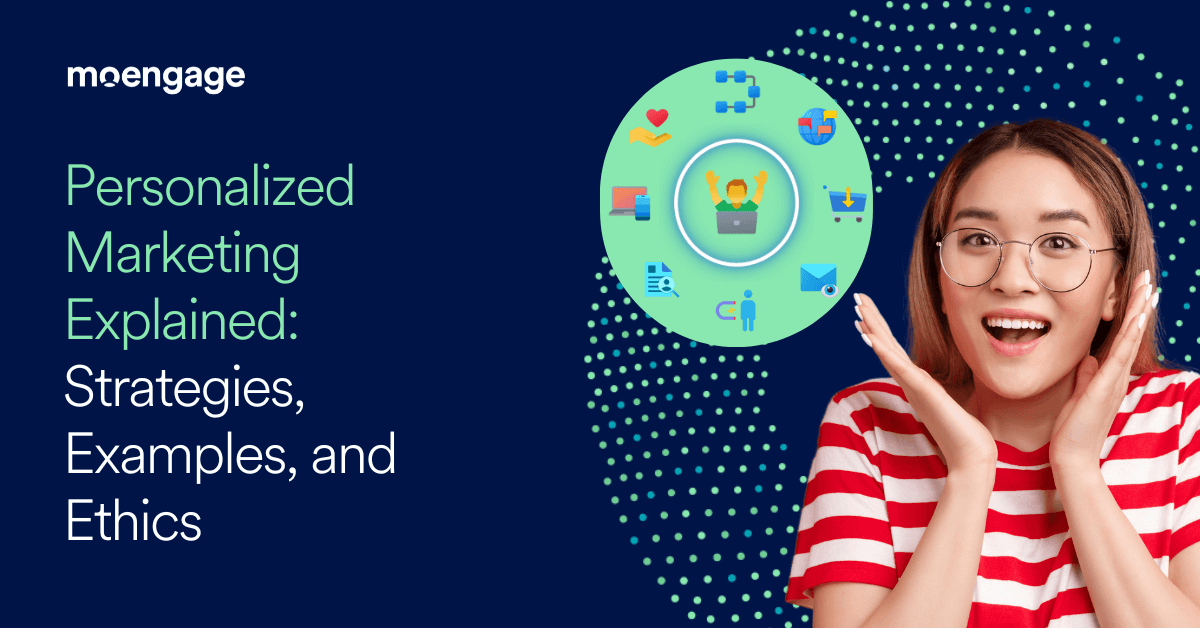Personalized marketing has evolved into one of the most effective strategies for businesses aiming to build lasting relationships with their customers. As we approach 2025, advancements in technology, particularly artificial intelligence (AI) and big data, are enabling companies to deliver hyper-personalized experiences at scale. These advancements are setting new standards for customer engagement, improving brand loyalty, and driving revenue growth.
In this article, we will explore the rise of personalized marketing, the role of AI in shaping it, and how businesses can master this approach in 2025. Along the way, we will highlight some emerging business trends and opportunities in this evolving space.
The Shift Toward Hyper-Personalization
Gone are the days when broad, one-size-fits-all marketing campaigns sufficed. Modern consumers expect brands to understand their unique preferences and deliver relevant content, products, and services tailored specifically to their needs. The shift toward hyper-personalization has been fueled by the growing availability of customer data and sophisticated technologies that allow businesses to analyze and act on this data in real time.
Personalized marketing involves tailoring marketing efforts based on individual customer behaviors, preferences, demographics, and other key data points. By leveraging these insights, businesses can create meaningful interactions with their audience, improving engagement and conversion rates. In 2025, this trend is becoming more sophisticated as companies embrace AI-driven solutions to automate and enhance personalization at every touchpoint.
The Role of AI in Personalized Marketing
Artificial intelligence is at the forefront of personalized marketing in 2025. AI enables businesses to analyze vast amounts of customer data, identify patterns, and deliver targeted recommendations with unprecedented accuracy. Whether it’s through dynamic email campaigns, personalized product recommendations, or customized advertising, AI empowers marketers to create experiences that resonate with individual customers.
AI-powered tools like chatbots and virtual assistants play a crucial role in delivering personalized customer service. These tools can analyze customer interactions, anticipate their needs, and provide tailored solutions in real time. For example, an AI-driven chatbot can recommend products based on a customer’s browsing history, answer specific questions, or even upsell complementary items.
Moreover, AI is enhancing content personalization. Marketers can use AI to analyze customer preferences and create personalized content, from blog posts to social media ads, that aligns with their interests. This level of personalization not only improves engagement but also builds trust and credibility with the audience.

Data-Driven Insights for Smarter Campaigns
In 2025, data is the foundation of effective personalized marketing. Companies are leveraging advanced analytics tools to gain deeper insights into customer behavior, preferences, and purchasing patterns. These insights enable businesses to segment their audience more effectively and craft targeted campaigns that speak directly to each segment.
Predictive analytics, powered by AI, allows marketers to anticipate customer needs and behaviors. By analyzing historical data, predictive models can forecast future actions, such as which products a customer is likely to purchase or when they are most likely to make a purchase. Armed with these insights, businesses can design proactive marketing strategies that drive conversions and maximize ROI.
Real-time data is another critical component of personalized marketing in 2025. By monitoring customer interactions across various channels, businesses can adapt their marketing efforts on the fly to deliver the most relevant experiences. For instance, a customer browsing a website might receive a personalized discount offer via email or a targeted ad on social media within minutes.
Personalized Email Marketing Strategies
Email marketing remains one of the most effective channels for personalized marketing, and in 2025, it has become even more sophisticated. Businesses are leveraging AI-powered tools to create highly targeted email campaigns that cater to individual customer preferences and behaviors. These tools allow marketers to automate the process of segmenting their audience, crafting personalized messages, and optimizing email delivery times.
Dynamic content is a key feature of personalized email marketing. Marketers can use dynamic content blocks to display different messages, images, or offers within the same email based on the recipient’s data. For example, a clothing retailer might showcase winter jackets to customers in colder regions while promoting summer apparel to those in warmer climates—all within the same campaign.
Moreover, AI-driven analytics enable businesses to track the performance of their email campaigns in real time. By analyzing metrics like open rates, click-through rates, and conversion rates, marketers can refine their strategies and continuously improve the effectiveness of their campaigns. This level of optimization ensures that email marketing remains a powerful tool for personalized communication.
The Power of Personalized Advertising
Personalized advertising is another area where businesses are excelling in 2025. With the help of AI, companies can create targeted ads that resonate with individual customers, improving ad relevance and driving higher engagement. Personalized ads are not only more effective but also less intrusive, as they align with the customer’s interests and needs.
One of the most popular forms of personalized advertising is retargeting. Retargeting ads use cookies to track customers’ online behavior and display ads based on their browsing history. For instance, a customer who views a specific product on an e-commerce website might later see ads for that product on social media or other websites. This strategy keeps the product top of mind and increases the likelihood of conversion.
Social media platforms like Facebook, Instagram, and LinkedIn are also leveraging AI to enhance ad personalization. These platforms allow businesses to create highly targeted ad campaigns based on factors like demographics, interests, and online behavior. By delivering relevant ads to the right audience, businesses can maximize their advertising ROI and improve customer satisfaction.
Personalization in E-Commerce and Online Business
The e-commerce industry has been at the forefront of personalized marketing, and in 2025, it continues to set the standard for innovation. Online retailers are using AI to create personalized shopping experiences that delight customers and drive sales. From tailored product recommendations to personalized discounts, e-commerce businesses are leveraging AI to build stronger relationships with their customers.
Personalized product recommendations are a cornerstone of e-commerce personalization. By analyzing a customer’s purchase history, browsing behavior, and preferences, AI-powered systems can suggest products that are most likely to appeal to them. These recommendations can appear on the website, in email campaigns, or even within mobile apps, providing a seamless and engaging shopping experience.
Subscription-based e-commerce businesses are also benefiting from personalization. By analyzing customer preferences, these businesses can curate subscription boxes that align with individual tastes, ensuring customer satisfaction and retention. This approach not only enhances the customer experience but also fosters brand loyalty.
For entrepreneurs looking to explore small business ideas or launch an online business, investing in personalized marketing strategies is a surefire way to stand out in a competitive marketplace. By adopting AI-powered personalization tools, small businesses can compete with larger players and build a loyal customer base.
Overcoming Challenges in Personalized Marketing
While personalized marketing offers numerous benefits, it also presents some challenges. One of the biggest hurdles is data privacy and security. As businesses collect and analyze more customer data, they must ensure that this data is handled responsibly and complies with data protection regulations. Transparency and ethical data practices are essential to building trust with customers.
Another challenge is integrating personalization across multiple channels. Customers interact with brands through various touchpoints, including websites, social media, email, and mobile apps. To deliver a seamless experience, businesses must ensure that their personalization efforts are consistent across all channels. This requires robust technology infrastructure and a unified approach to data management.
The Future of Personalized Marketing
As we look to the future, personalized marketing will continue to evolve, driven by advancements in AI and data analytics. Businesses that embrace personalization as a core strategy will be better positioned to meet the changing expectations of their customers and achieve long-term success.
For entrepreneurs exploring startup ideas or established companies seeking to innovate, investing in AI-driven personalization is a smart move. By staying ahead of the curve and leveraging the latest technologies, businesses can create meaningful, lasting connections with their customers and thrive in an increasingly competitive landscape.
In 2025, mastering personalized marketing is not just a trend—it’s a necessity. By delivering relevant, engaging, and personalized experiences, businesses can build trust, foster loyalty, and drive growth in the years to come.

